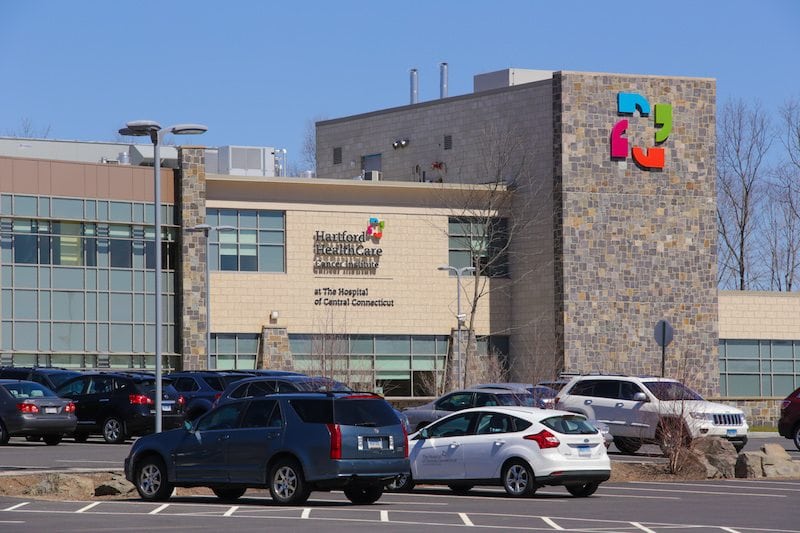Q: What is the Hartford HealthCare (HHC) Cancer Institute?
A: The HHC Cancer Institute was established to deliver high-quality, standardized, multidisciplinary and coordinated care to all HHC cancer patients, no matter where in the HHC system a patient receives care. As a system, HHC treats more than 6,000 new cancer cases annually. The institute model of care provides all the types of expert care a patient may need for his or her treatment and overall quality of life. Sitespecific, cancer-care teams of oncologists, surgeons, radiologists, pathologists, nurses, researchers and others meet weekly to discuss patients. A team is involved in every patient’s care.
Q: What is the Memorial Sloan Kettering (MSK) Cancer Center?
A: Founded in 1884 in New York City, MSK is the world’s oldest and largest private cancer center and is a world leader in patient care, research and cancer educational programs. MSK has been ranked by US News & World Report as one of the best hospitals for cancer care in the United States. Each year, MSK treats 35,000 new patients; has 500,000 outpatient visits and 19,000 surgical cases; and its expert physicians are specialists in more than 400 types of cancer. MSK has more than a dozen multidisciplinary cancer-care teams, which include the various experts a patient needs for treatment for his or her type of disease. These experts include surgeons, medical oncologists, radiation oncologists, radiologists, pathologists, psychiatrists, and nurses. MSK pioneered this multidisciplinary approach to treating cancer, which is the way the HHC Cancer Institute practices – focusing not only on cancer treatment, but also on the patient’s overall well-being and quality of life.
Q: What does the HHC Cancer Institute’s membership in the alliance mean for patients?
A: HHC Cancer Institute patients have access to world-renowned cancer care and unprecedented access to MSK clinical trials, which are conducted and delivered by HHC Cancer Institute physicians system-wide. Clinical trials allow patients to receive the newest, most cutting-edge therapies and participate in advancing the care of future generations of cancer patients. Clinical trials are not just for patients with advanced disease. Expanding MSK’s clinical trials also speeds up data collection so that investigational therapies can become approved faster and made available to more patients.
Q: Does this mean more HHC patients go to New York for care?
A: Because this alliance will bring MSK standards of care to the HHC Cancer Institute, the Cancer Institute does not anticipate referring more patients to MSK. In most cases, HHC Cancer Institute patients are treated by HHC Cancer Institute physicians using MSK standards of care. For treatments not offered by the HHC Cancer Institute, such as bone-marrow transplants, patients have the option to go to MSK.
Q: When, and how. did MSK and HHC make their alliance final?
A: An MSK certification process, completed in September 2014, ensured that the HHC Cancer Institute’s resources, capabilities and standards of care met or exceeded the most recent and highest standards. Designated HHC Cancer Institute clinicians observed new treatment techniques on-site at MSK in New York City. The two organizations nowl share educational resources, and MSK conducts quality and outcomes research at HHC Cancer Institute facilities.
HHC Cancer Institute doctors have been integrated into MSK disease-management teams and actively participate in MSK clinical research. Besides HHC Cancer Institute physicians, HHC Cancer Institute nurses, pharmacists, imaging experts and other care givers received training.

